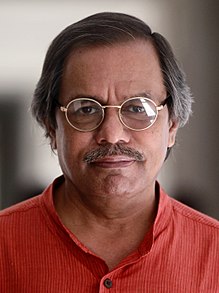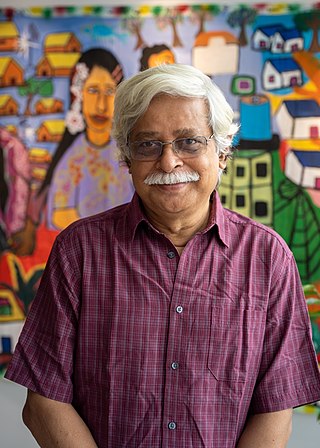
Muhammed Zafar Iqbal is a Bangladeshi science fiction author, physicist, academic, activist and former professor of computer science and engineering and former head of the department of Electrical and Electronic Engineering at Shahjalal University of Science and Technology (SUST). He achieved his PhD from University of Washington. After working 18 years as a scientist at California Institute of Technology and Bell Communications Research, he returned to Bangladesh and joined Shahjalal University of Science and Technology as a professor of Computer Science and Engineering. He retired from his teaching profession in October 2018. He is considered one of Bangladesh's top science fiction writers.
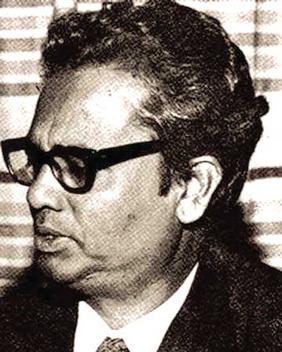
Munier Choudhury was a Bangladeshi educationist, playwright, literary critic and political dissident. He was a victim of the mass killing of Bangladeshi intellectuals in 1971. He was awarded Independence Day Award in 1980, by the then president Ziaur Rahman's government, posthumously.

Dhaka College is the oldest secular educational institution of Bangladesh located in New Market, Dhaka 1205. It offers higher secondary education (HSC). It has Honours and Masters programs as well which are affiliated with the University of Dhaka.

Fakrul Alam is a Bangladeshi academic, writer, and translator. He writes on literary matters and postcolonial issues and translated works of Jibanananda Das and Rabindranath Tagore into English. He is the recipient of Bangla Academy Literary Award (2012) in translation literature and SAARC Literary Award (2012).
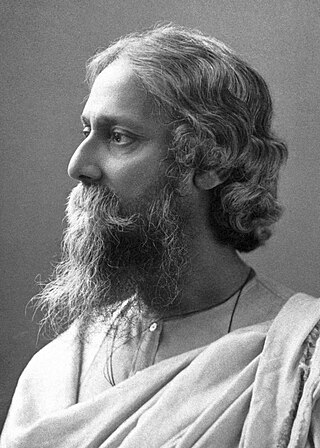
Bengali literature denotes the body of writings in the Bengali language and which covers Old Bengali, Middle- Bengali and Modern Bengali with the changes through the passage of time and dynastic patronization or non-patronization. Bengali has developed over the course of roughly 1,300 years. If the emergence of the Bengali literature supposes to date back to roughly 650 AD, the development of Bengali literature claims to have 1,600 years of old. The earliest extant work in Bengali literature is the Charyapada, a collection of Buddhist mystic songs in Old Bengali dating back to the 10th and 11th centuries. The timeline of Bengali literature is divided into three periods: ancient (650–1200), medieval (1200–1800) and modern. Medieval Bengali literature consists of various poetic genres, including Hindu religious scriptures, Islamic epics, Vaishnava texts, translations of Arabic, Persian and Sanskrit texts, and secular texts by Muslim poets. Novels were introduced in the mid-19th century. Nobel laureate Rabindranath Tagore is the best known figure of Bengali literature to the world. Kazi Nazrul Islam, notable for his activism and anti-British literature, was described as the Rebel Poet and is now recognised as the National poet of Bangladesh.
Syed Ali Ahsan was a Bangladeshi poet, writer and university academic. He was awarded Ekushey Padak (1982) and Independence Day Award (1987) by the Government of Bangladesh. In 1987, he was selected as the National Professor of Bangladesh. He was credited as the official English translator of the National Anthem of Bangladesh.

Syed Mujtaba Ali was a Bengali writer, journalist, travel enthusiast, academic, scholar and linguist. He lived in Bangladesh, India, Germany, Afghanistan and Egypt.
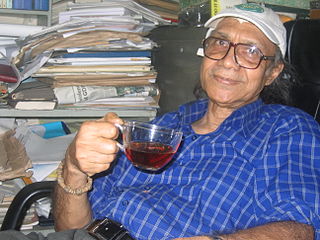
Abdul Mannan Syed was a Bangladeshi poet, and critic. He is known for his considerable research works on Kazi Nazrul Islam, Jibanananda Das, Farrukh Ahmad, Syed Waliullah, Manik Bandyopadhyay, Bishnu De, Samar Sen, Roquiah Sakhawat Hossain, Abdul Ghani Hazari, Muhammad Wajed Ali, Prabodh Chandra Sen. From 2002 to 2004, he had been the executive director of Nazrul Institute.

Serajul Islam Choudhury is a Bangladeshi literary critic, public intellectual, social and political analyst, activist, historian, educationist, editor, translator, columnist, and professor emeritus at the University of Dhaka. He is the editor of Natun Diganta. Considered one of the foremost oppositional intellectuals of Bangladesh, he authored nearly a hundred books and countless essays in Bangla and English.
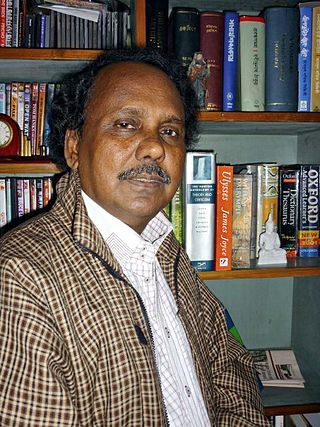
Khondakar Ashraf Hossain was a leading postmodernist poet, essayist, translator, and editor from Bangladesh. He wrote more than eighteen titles.

Bimal Guha is a Bangladeshi poet. He appeared on the Bangladesh literary scene in the 1970s. His themes revolve around the war of liberation and the eternal subjects of love, nature, motherland, mother-tongue, tradition, and modernity.

Syed Abul Maksud was a Bangladeshi journalist, columnist, research scholar, essayist, and writer. He was acclaimed for his critical and research work. He was a regular contributor to the Daily Prothom Alo. His essays on literature, society, culture and politics are much appreciated for his clear view, lucid language and simple style. He carried out substantive research works on "the lives of famous litterateurs such as Rabindranath Tagore, Buddhadeva Bose", Mohandas Karamchand Gandhi, Syed Waliullah etc. His Journal of Germany is a popular travel book. In 1995, he was awarded Bangla Academy Literary Award by Bangla Academy for his contributions to Bengali Literature.
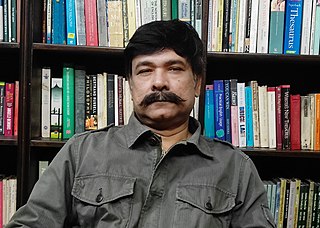
Harun-Ur-Rashid Askari, known as Rashid Askari, is a Bengali-English writer, fictionist, columnist, translator, media personality, and an academic in Bangladesh. He was the 12th vice-chancellor of Islamic University, Bangladesh in Kushtia. Among post-1990s Bangladeshi writers, he is easily on par with the major ones who gained identical and impressive mastery over both Bangla and English.
The Sylheti or Sylhetis are an Indo-Aryan ethnocultural group that are associated with the Sylhet region in South Asia, presently divided between the Sylhet Division of Bangladesh, and the Barak Valley of Assam, India. There are sizeable Sylheti populations in North Tripura, as well as in rest of Bangladesh and northeast India.They speak Sylheti, an Eastern Indo-Aryan language which is ambiguously considered as an independent language, or as a dialect of Bengali.
M Harunur Rashid is a distinguished teacher of English literature and language, a notable educational administrator, editor and translator of modern poetry and prose, in Bangladesh, a noted writer of Sufism and Sufi literature and a commentator of social, political, cultural scene and literary texts.
Syed Murtaza Ali was a Bangladeshi writer. He was the elder brother of writer and linguist Syed Mujtaba Ali. He is noted for his works relating to the histories of Chittagong, Sylhet and Jaintia.

Wasi Ahmed is an acclaimed Bangladeshi novelist and short story writer. His works in original and in translation have been anthologized in Bangladesh, India, Sri Lanka and UK. He has co-authored and edited an anthology of South Asian short stories. Formerly a civil servant and diplomat, he is currently associated with the English daily The Financial Express as consulting editor, and contributes to a number of Bangla and English dailies. Among others, he contributes a weekly post-editorial column for The Financial Express.
BRAC Bank and Daily Samakal launched the literary award in 2011 to inspire writers and litterateurs to further enriching Bangla literature with their creative works. Later, Young Writer's Award was dedicated in memory of late legendary novelist Humayun Ahmed. It's also known as BRAC Bank-Samakal Shahitya Puroshkar. The award given in three categories:
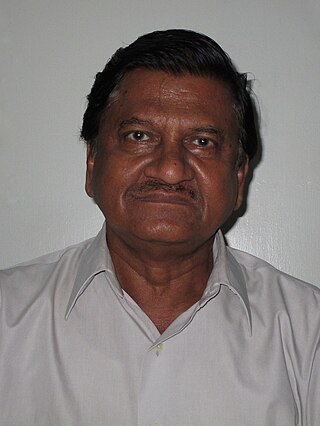
Abul Kashem Fazlul Haq is a Bangladeshi writer, essayist, translator, critic, columnist and activist. He is a former professor of Bengali language and literature at the University of Dhaka. He is the convener of Rashtrabhasha Bangla Rokkha Komiti. He received Bangla Academy Literary Award in 1981.
